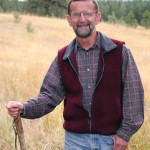Home »

Some radical thoughts about global warming
Many, many years ago when I was still a callow lad I read Rachel Carson’s groundbreaking book Silent Spring. Published in 1962, many consider this seminal book gave birth to the modern day environmental movement and all that’s followed in its wake for better or worse. Count me in the “better” camp.
 Carson upset politicians and policy makers of the day with her bold assertion that man-made chemicals like DDT and other pesticides were wreaking havoc on the natural world in ways that no one had ever thought of by getting into the food chain and preventing many species, mainly birds, from being able to reproduce.
Carson upset politicians and policy makers of the day with her bold assertion that man-made chemicals like DDT and other pesticides were wreaking havoc on the natural world in ways that no one had ever thought of by getting into the food chain and preventing many species, mainly birds, from being able to reproduce.

Carson’s book was violently attacked from all sides, especially by the multi-national chemical companies that launched lawsuits against her and labeled her a “hysterical woman.” Even the scientific community was originally slow to come to her defense because her theory seemed so radical that over-use of pesticides was causing pregnant bird eggs to thin so much that the eggs often broke before the chicks could hatch. However, subsequent scientific research showed Carson to be right and DDT was banned in most of the world and laws passed to rigidly control the use of all pesticides.
Fast-forward 50 years and the world is involved in another great debate over global warming and how much of it is man-made and how much can be attributed to natural causes. That our climate is warming at an alarming rate is uncontestable as the world’s rapidly shrinking glaciers and polar ice caps prove overwhelmingly except to the most ideological of climate change deniers. But, and this is a big “but,” what is not nearly so uncontestable is the reason or reasons why the planet is warming so obviously quickly.
Increasingly, the world’s scientists seem united behind the belief that our oil-based civilization’s addiction to carbon and releasing stupendous amounts of carbon into the atmosphere is the main man-made cause contributing to climate warming, especially what has been observed and measured the last 20 years. It’s hard to argue with this and I’m no scientist, but for quite some time I’ve held my own little private theory of global warming that I was afraid to broach publicly until now. My theory is quite simple, namely that if the sun is a giant thermo-nuclear reactor in the sky it’s rate of heating and cooling is not constant. Although the sun is ultimately cooling down it waxes and wanes just like many fires do and when it waxes the Earth’s climate gets warmer and when it wanes we have another Ice Age.
I told you it was a simple theory!
Anyway, I kept this theory largely to myself until Kevin Weaver, Cranbrook’s economic development officer, brought to my attention the work of Russian astronomer H.I. Abdusamatov, head of the Russian Space Research Laboratory at Saint Petersburg. Abdusamatov claims that global warming results not from the emission of greenhouse gases into the atmosphere, but from an unusually high level of solar radiation and a growth in intensity the past century. To back up his theory, Abdusamatov points to a similar parallel warming the past century in Mars which, of course, doesn’t have oil refineries, vehicles and industry belching carbon dioxide into the sky. In fact, the Russian scientist, who has been incorrectly labeled a global warming skeptic by some (he’s not denying global warming, just questioning the reasons behind it) has predicted the onset of a new mini Ice Age in 2014 and growing in intensity through the middle of the century. Consequently we won’t have to wait long to see if Abdusamatov’s theories hold water or ice so to speak.
Now no one should take what I’ve just written as climate warming denial because I believe in global warming absolutely. However, I also believe the jury is still out on why the Earth is warming up so quickly and I strongly suspect there’s a variety of reasons for it and no single cause. We should indeed be doing everything we can to reduce carbon emissions in the atmosphere and all other kinds of atmospheric pollution as well.
But as Rachel Carson pointed out so many years ago, a healthy dose of skepticism is always a good thing even when it comes to the theories of scientists.
Gerry Warner is a retired journalist and a Cranbrook City Councillor. His opinions are his own.








